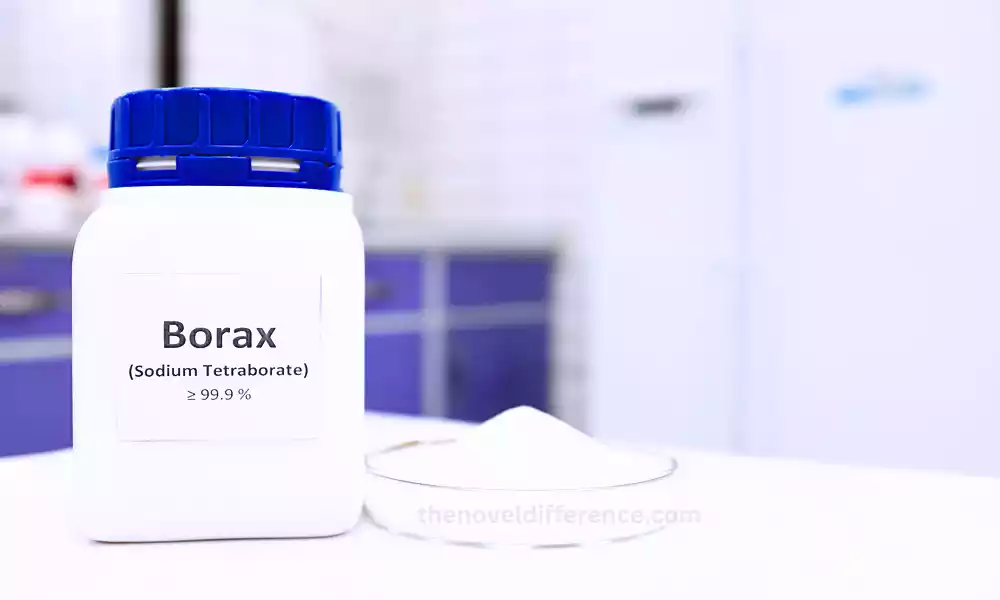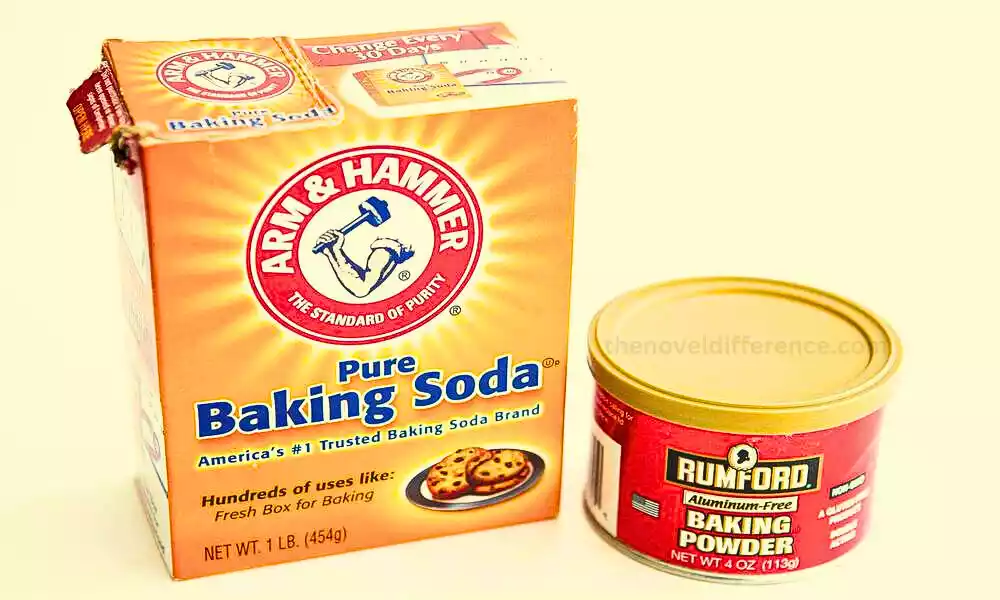When it comes to household products, Borax and baking soda are two versatile compounds. Which often find their way into cleaning routines, personal care, and even DIY science experiments. Although Borax and Baking Soda substances look similar at first glance. They have different characteristics and uses, which differentiate them. In this article, we will explore the broad differences between borax and baking soda. Let’s explore their various applications and benefits.
Importance of Borax
Borax is a naturally occurring mineral compound composed of boron, sodium, oxygen, and water. It is of significant importance in various household and industrial applications. Its versatility stems from its unique chemical properties. Which makes it an essential ingredient in many cleaning, crafting, and pest control activities.
In the household, borax plays an important role in laundry. As a laundry booster and stain remover, it effectively removes stubborn stains and increases the cleaning power of detergents. It finds utility in crafts and DIY projects due to its ability to solder and create crystalline structures.
Borax works as a pest control agent against insects like ants and cockroaches. The effectiveness further clarifies its significance in maintaining a pest-free living environment. So, although Borax offers many benefits. Which makes it imperative to use it judiciously and with an understanding of its potential risks. Excessive exposure can cause health concerns.
Importance of Baking Soda
Baking soda, scientifically known as sodium bicarbonate. It has significant importance due to its versatile properties. which spans the fields of cooking, household, and personal care. In the culinary field, baking soda is a staple of baking. which acts as a leavening agent. This causes the dough to rise, and results in fluffy and delicious baked goods.
Its role in pH regulation also contributes to tenderizing meat and enhancing the texture of certain foods. Outside of the kitchen, baking soda’s natural odor-absorbing qualities make it an effective deodorizer for refrigerators, carpets, and shoes, ensuring a fresh environment.
Its mild abrasive nature qualifies it as a non-abrasive cleaner for a variety of surfaces. Which makes it an eco-friendly alternative to harsh chemical cleansers. Baking soda is valued in personal care routines. Where it acts as an ingredient in toothpaste.
Which is a mild abrasive for dental hygiene. Its ability to soothe minor skin irritations also adds to its usefulness in skin care. As an affordable, readily available, and safe substance, baking soda has earned its place as a versatile household staple worldwide.
What is Borax?
Borax, scientifically known as sodium borate. A naturally occurring mineral that has multiple roles in various applications. Composed of essential elements such as boron, sodium, oxygen, and water, borax is recognized for its unique chemical composition and properties. Mined from deposits formed by the evaporation of ancient lakes, this compound has a long history of use dating back centuries.

Borax works as a cleaning agent in household chores, due to its ability to enhance the cleaning power of detergents and help remove stubborn stains. Finds its place by acting as a laundry booster and stain remover. It also plays an important role in handicrafts. Acts as a flux in metalworking and as a means of creating unique crystal structures. Borax is valued for its effectiveness in controlling pests.
It provides a natural solution to repel insects like ants and cockroaches. So, while borax boasts a range of practical uses. It is then important to handle it with care and awareness of potential health risks especially when used in excess or near people and pets.
What is Baking Soda?
Baking soda, scientifically known as sodium bicarbonate. It is a versatile compound renowned for its wide application in household, culinary, and personal care routines. Baking soda is chemically composed of sodium, hydrogen, carbon, and oxygen. Which makes it an essential ingredient. In baking, it acts as a leavening agent.

When mixed with acidic materials, it induces the release of carbon dioxide gas. This causes the dough to rise and create light, airy baked goods. Outside of the kitchen, baking soda’s extraordinary ability to neutralize odors makes it an effective deodorizer for a variety of spaces and items, from refrigerators to carpets.
Its mild abrasive nature provides adequate cleaning power for a wide range of surfaces without damaging them. So, baking soda finds utility in personal care, being employed in toothpaste for its mild abrasive action and in skin care for its soothing properties. With its numerous practical applications, affordability, and non-toxic nature, baking soda remains a household staple worldwide.
Difference Between Borax and Baking Soda
| Aspect | Borax | Baking Soda |
|---|---|---|
| Chemical Name | Sodium Borate | Sodium Bicarbonate |
| Chemical Formula | Na2B4O7·10H2O | NaHCO3 |
| Common Uses | Laundry booster, stain remover, pest control | Leavening agent, deodorizer, cleaning agent |
| pH Level | Alkaline | Alkaline |
| Culinary Uses | Not used for culinary purposes | Leavening agent, tenderizer |
| Environmental Impact | Can be harmful to aquatic life | Generally eco-friendly |
| Safety Considerations | Can be toxic in high amounts, handle it carefully | Generally safe, but avoid excessive ingestion |
| Personal Care Uses | Limited applications due to potential toxicity | Toothpaste, skincare |
| Reaction with Acids | Can react with acids to produce boric acid | Releases carbon dioxide gas |
| Odor Absorption | Limited odor-absorbing capabilities | Effective at neutralizing odors |
| Cleaning Applications | Not commonly used for cleaning | Non-abrasive cleaner for various surfaces |
| Pest Control Uses | Effective against certain insects | Not used for pest control |
Remember that Borax and Baking Soda substances have their own distinct properties and uses, so it’s important to choose the right one for the specific task you have in mind.
Uses and Applications
Here’s a breakdown of the uses and applications of both Borax and Baking Soda:
Borax:
- Laundry and Stain Removal: Borax acts as a laundry booster, enhancing the effectiveness of detergents by softening water and helping to remove stubborn stains from clothing.
- Pest Control: It is used as an eco-friendly solution to control pests like ants, cockroaches, and fleas. Borax disrupts their digestive systems and leads to their demise.
- DIY Household Cleaners: Borax is a key ingredient in making homemade cleaners for various surfaces, due to its ability to remove dirt, grease, and grime.
- Crafting and DIY Projects: Borax crystals are often used for crafting and educational purposes, creating intricate crystal formations and geode-like structures.
Baking Soda:
- Baking and Cooking: Baking soda is a leavening agent in baking, causing dough to rise and resulting in light and airy baked goods. It’s also used as a tenderizer for meats and a pH regulator in cooking.
- Deodorizing and Odor Removal: Baking soda’s natural odor-absorbing properties make it useful for neutralizing odors in shoes, refrigerators, and other spaces.
- Fire Extinguishing: In small fires, baking soda can be used as an emergency fire extinguisher due to its ability to release carbon dioxide and smother flames.
- Personal Care and Beauty Applications: Baking soda is found in toothpaste for its mild abrasive action and in skin care as an ingredient in DIY facial scrubs and exfoliants.
Both Borax and Baking Soda have diverse applications, making them valuable substances to have in a household. So, it’s essential to use them correctly and safely, adhering to recommended guidelines and precautions.
Safety and Environmental Considerations
Here’s a comparison of the safety and environmental considerations for both Borax and Baking Soda:
Borax:
Safety Considerations:
- Borax can be toxic if ingested in large quantities, causing stomach and digestive issues.
- Prolonged skin contact or inhalation of Borax powder can lead to skin irritation and respiratory problems.
- It should be kept out of reach of children and pets and used with caution around food preparation areas.
- Pregnant women and individuals with respiratory conditions should avoid unnecessary exposure.
Environmental Impact:
- Borax can be harmful to aquatic life if it enters water bodies, as it disrupts their reproductive and metabolic processes.
- Using Borax in excessive amounts or disposing of it improperly can contribute to environmental contamination.
Baking Soda:
Safety Considerations:
- Baking soda is generally safe for consumption in small quantities, but consuming excessive amounts may lead to digestive discomfort.
- It’s safe for skin contact and inhalation, making it a more user-friendly option for various applications.
Environmental Impact:
- Baking soda is considered environmentally friendly and safe. It can be used as a cleaning agent without causing harm to aquatic life or ecosystems.
- Its natural composition means it doesn’t introduce harmful chemicals into the environment.
Choosing the Right Option
Choosing the right option between Borax and Baking Soda depends on the specific task at hand, your safety concerns, and environmental considerations.
Here’s a guide to help you make the appropriate choice:
Choose Borax When:
- Pest Control: If you’re dealing with pests like ants or cockroaches, Borax can be an effective and eco-friendly solution.
- Crafting: For DIY projects involving crystal formations or geode-like structures, Borax is a suitable choice.
- Laundry: When you need to boost the cleaning power of your laundry detergent or remove tough stains, Borax can be helpful.
Consider Safety: Use Borax cautiously, following recommended guidelines to avoid skin irritation, inhalation, and ingestion. Keep it out of reach of children and pets.
Consider the Environment: Be mindful of Borax’s potential impact on aquatic life and avoid excessive use near water sources.
Choose Baking Soda When:
- Cooking and Baking: For culinary uses like leavening, tenderizing, or regulating pH in cooking, baking soda is essential.
- Deodorizing: When you need to neutralize odors in various spaces or items, baking soda is a natural choice.
- Cleaning: Baking soda’s gentle abrasive properties make it effective for cleaning without causing damage to surfaces.
Consider Safety: Baking soda is generally safe for various applications, but avoid excessive consumption or inhalation.
Consider the Environment: Baking soda is environmentally friendly and can be used for cleaning without harming aquatic life or ecosystems.
Remember that both Borax and Baking Soda have their strengths and limitations. It’s important to be informed about their uses, safety precautions, and potential environmental impacts to ensure that your choice aligns with your needs and values.
Conclusion
Borax and baking soda stand out for their wide-ranging applications and unique properties. While borax shines as a robust cleaner and insecticide, baking soda excels in baking, odor elimination, and personal care. Understanding the distinct characteristics of these two compounds empowers you to utilize them effectively in various aspects of your daily life.
